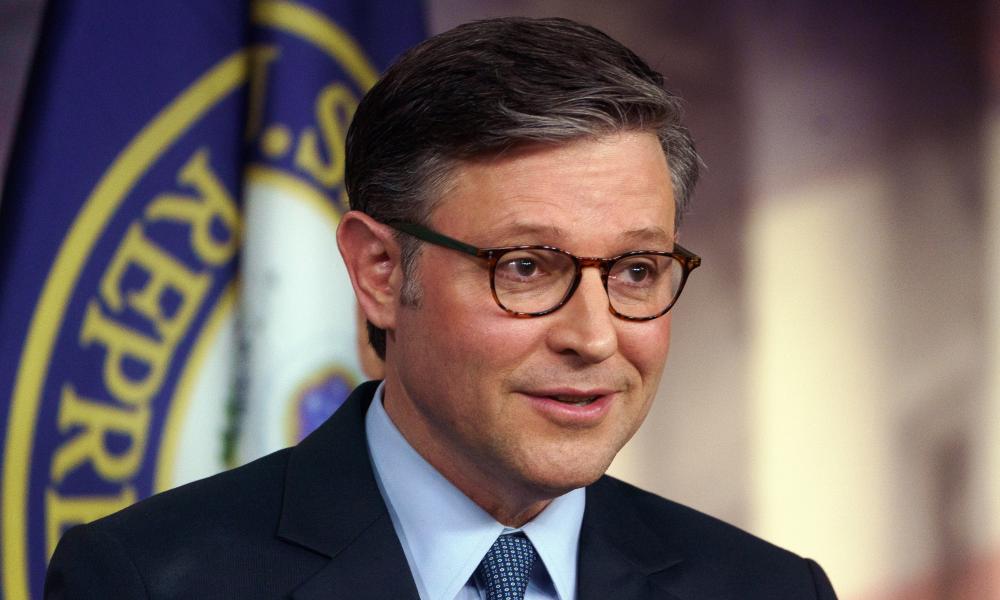In a recent tumultuous turn of events in Washington, Donald Trump expressed support for House Republicans’ new strategy to prevent a government shutdown, following his abrupt rejection of a bipartisan funding proposal that left Congress in disarray. The turmoil unfolded just days before the Christmas holiday, with Trump taking to social media to proclaim, “SUCCESS in Washington!” as Republicans hinted at a tentative agreement. Key House figures, including Congressman Tom Cole and Congresswoman Stephanie Bice, acknowledged the existence of a deal, though the details were still pending. The emerging proposal is said to aim for an extension of current funding levels through mid-March, include disaster assistance for states affected by recent hurricanes, and suspend the debt ceiling until January 2027. However, despite this framework, concerns loom over whether it will garner enough support in the slim-margin House.
The urgency to finalize a funding plan heightened as federal funding was set to expire on Saturday morning, propelling lawmakers into a frantic effort to avert a shutdown prior to their holiday recess. The alternative bipartisan plan, previously proposed, sought to extend funding through March 14, yet this was swiftly undermined by Trump’s interference. In conversations following a meeting with Trump’s vice president-elect, JD Vance, some Senate Republicans voiced their frustrations. Senator Susan Collins remarked on the continued uncertainty surrounding a viable plan. Iowa Senator Chuck Grassley echoed concerns, highlighting the irrationality of shutting down the government amid a ballooning national debt that now stands at $35 trillion.
Trump’s late intervention appeared to create chaos within the legislative process, leading House Speaker Mike Johnson to scramble for solutions late into the night. Adding to the discord, Trump suggested scrapping the existing debt ceiling altogether, a move that typically finds more favor among Democrats. In an NBC News interview, Trump emphasized that eliminating the debt ceiling would be “the smartest thing” Congress could do. However, the proposal met immediate backlash from Democratic House Minority Leader Hakeem Jeffries, who accused Republicans of attempting to leverage the debt ceiling to undermine social benefits.
As the push for a stopgap funding bill progressed, Democrats harshly criticized the Republican leadership, framing the situation as a reckless choice that jeopardizes federal aid designed to assist communities impacted by widespread disasters. Jeffries called for House Republicans to adhere to their original bipartisan agreement rather than succumbing to Trump’s controversial demands. Nevertheless, some Democrats appeared open to considering the elimination of the debt ceiling, echoing progressive sentiments. Notably, Senator Elizabeth Warren voiced her agreement with Trump’s stance, asserting that Congress ought to abandon governing with such contentious measures.
Meanwhile, dissent brewed among hard-right conservatives who opposed the proposed spending increases, leading to growing unease as the expansive 1,500-page bill faced near collapse. Influential figures like Elon Musk quickly expressed their disdain for the plan, further galvanizing conservative resistance. The ongoing discord within Republican ranks indicated a power struggle, with lawmakers sensing the pressure to align with Trump’s directives or face the repercussions from their constituents, some of whom were swayed by Musk’s public opposition. Amid a backdrop of escalating calls from constituents, Republican representative Andy Barr of Kentucky noted a surge in calls opposing the funding measures.
House Speaker Mike Johnson’s challenges highlight the broader difficulties that the Republican party may face moving forward, especially as they gain control over the House, Senate, and White House. Johnson’s attempts to unify a fractured majority entailed late-night closed-door meetings in a bid to find common ground, emphasizing the reliance on Trump’s backing for legislative victories. Musk’s looming threats to mobilize against uncooperative lawmakers underscore the influence that wealthy individuals wield over party dynamics, raising concerns about governance being held hostage by the whims of a few. Democrats, including Maryland Representative Jamie Raskin, voiced alarm over the undemocratic implications of such financial oligarchies steering political decisions, illustrating the precarious balance of power within the current legislative framework.

